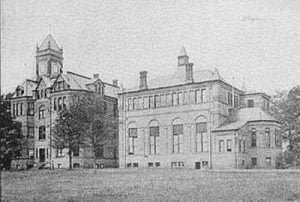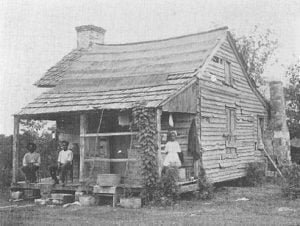Voices from the Black Belt
In a discussion of the Negro problem it is eminently appropriate the Freedman and his neighbor be accorded the privilege of expressing their respective views. The thoughts expressed in this chapter have been gleaned principally from the columns of the Afro-American, a colored weekly, published by the faculty of Biddle University, Charlotte, North Carolina. The problem of the Negro relates to his capacity for improvement and self-support. Is the American Negro, after centuries of slavery that kept the race in an infantile condition, capable of development and self support? Over this question the people of our country have expressed differing … Read more



